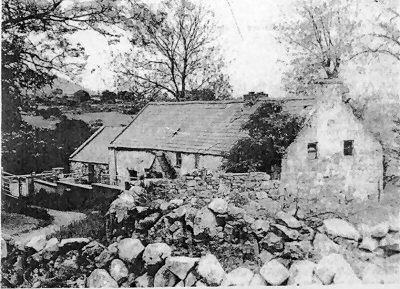The Williamite ‘settlement’ following the defeat of the Irish at the Boyne saw extremely harsh laws introduced to suppress the Catholic faith and the priests and bishops who helped maintain and propagate it.
The subordinate Protestant Dublin parliament in 1697 passed the Popery Act with the aim of expelling all Catholic bishops and higher clergy. Priests who agreed to swear allegiance to the Crown and abjured the right to go about their priestly duties, to be secular rather than religious, and who registered with the authorities, who could then monitor their activities, were permitted to stay. A small number agreed to these conditions rather than leave their flock without spiritual guidance. The penalty for non-compliance was execution or transportation and those who would not accept these conditions had to go into hiding. It was this period that saw ‘mass-rocks’ flourishing.
By the turn of the century, Dr Patrick Donnelly, who ministered in South Armagh, was one of only two Catholic bishops said to be operating in
Patrick Donnelly was born in Desertcreaght, Cookstown,
Bishop Donnelly’s hut of refuge was said to be located on the site of the house of the last native Irish speaker in the area, Sally Humphrey (who died c. 1918). Interviewed by Fr Laurence Murray (local historian, folklorist and archivist) Sally became indignant at the ‘mere doggerel’ of the words of that song (Bard of Armagh) that he recited to her. She had a clear recollection of an Ulster Gaelic folksong of that theme being sung to her in her youth, with the same haunting air that, in comparison, she regarded the modern ballad in English a poor, unworthy and senseless imitation.
Despite his mastery of disguise Bishop Donnelly did not forever escape detection. On 15 September 1706 he was arrested in Father John MacParlan’s house in Lathbirget by Walter Dawson. It was well into the following year before he was released for lack of evidence against him. He immediately resumed his sacred mission. He consecrated Edmund Byrne as Archbishop of Dublin and elevated another priest to the Bishopric of Killala.
He remained in Doctor’s Quarters until his death in 1716 at the age of 66. The great devotion in which he was held was illustrated in the funeral cortege afforded to him by his loving people. Having to act secretly by night for fear of the authorities, still they carried his coffin from parish to parish across the hills of Armagh and Tyrone and laid him to rest eventually in his native parish and in his own family grave at Desertcreaght.
Along with Saint Oliver Plunkett, Dr Patrick Donnelly, the Bard of
